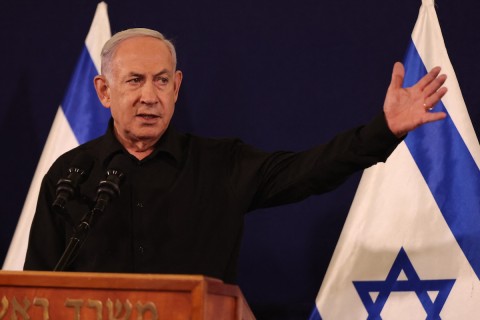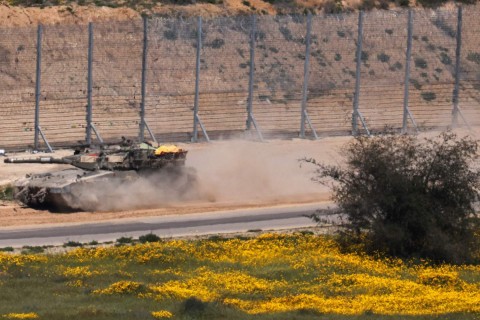By Amina Ismail and Ahmed Tolba
BEIRUT/CAIRO (Reuters) -Israel’s military ordered residents of 23 southern Lebanese villages on Saturday to evacuate to areas north of the Awali River, which flows from the western Bekaa Valley into the Mediterranean.
The order, communicated via a military statement, mentions villages in southern Lebanon that have been recent targets of Israeli attacks, many of which are already almost empty.
The Israeli military stated that evacuations were necessary for the safety of residents due to increased Hezbollah activities, claiming the group is using sites to conceal weapons and launch attacks on Israel.
Hezbollah denies concealing weapons among civilians.
Another member of the U.N. peacekeeping mission in Lebanon, UNIFIL, was struck by gunfire on Friday, it said in a statement on Saturday, adding that the man was now stable after undergoing surgery to remove the bullet.
The statement also said its position in the southern Lebanese town of Ramyah sustained significant damage due to explosions from nearby shelling, but did not specify who was responsible for either attack.
Two U.N. peacekeepers were wounded by an Israeli strike near their watchtower in south Lebanon on Friday, drawing condemnations from the global body and various nations.
The conflict between Israel and Hezbollah, which erupted one year ago when the Iranian-backed group began launching rockets at northern Israel in support of Hamas at the start of the Gaza war, has escalated over the past month.
Intensified Israeli attacks in southern Lebanon, the Bekaa Valley and the southern suburbs of Beirut have forced approximately 1.2 million people from their homes since Sept. 23, according to the Lebanese government.
The United Nations Office for the Coordination of Humanitarian Affairs said on Saturday that more Lebanese have now been displaced than during the last major war between Israel and Hezbollah in 2006, when around 1 million fled their homes.
(Reporting by Ahmed TolbaWriting by Adam Makary Editing by Peter Graff)




